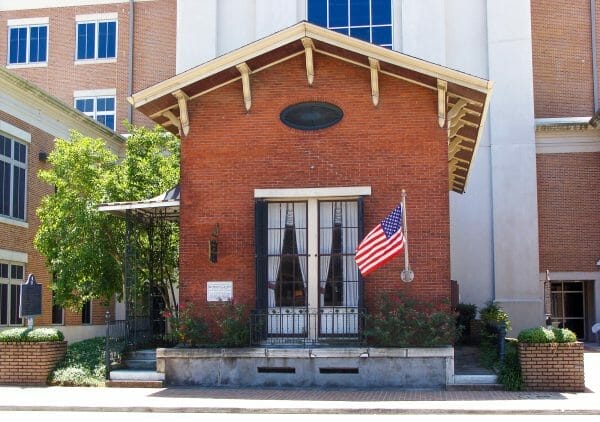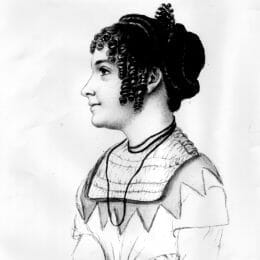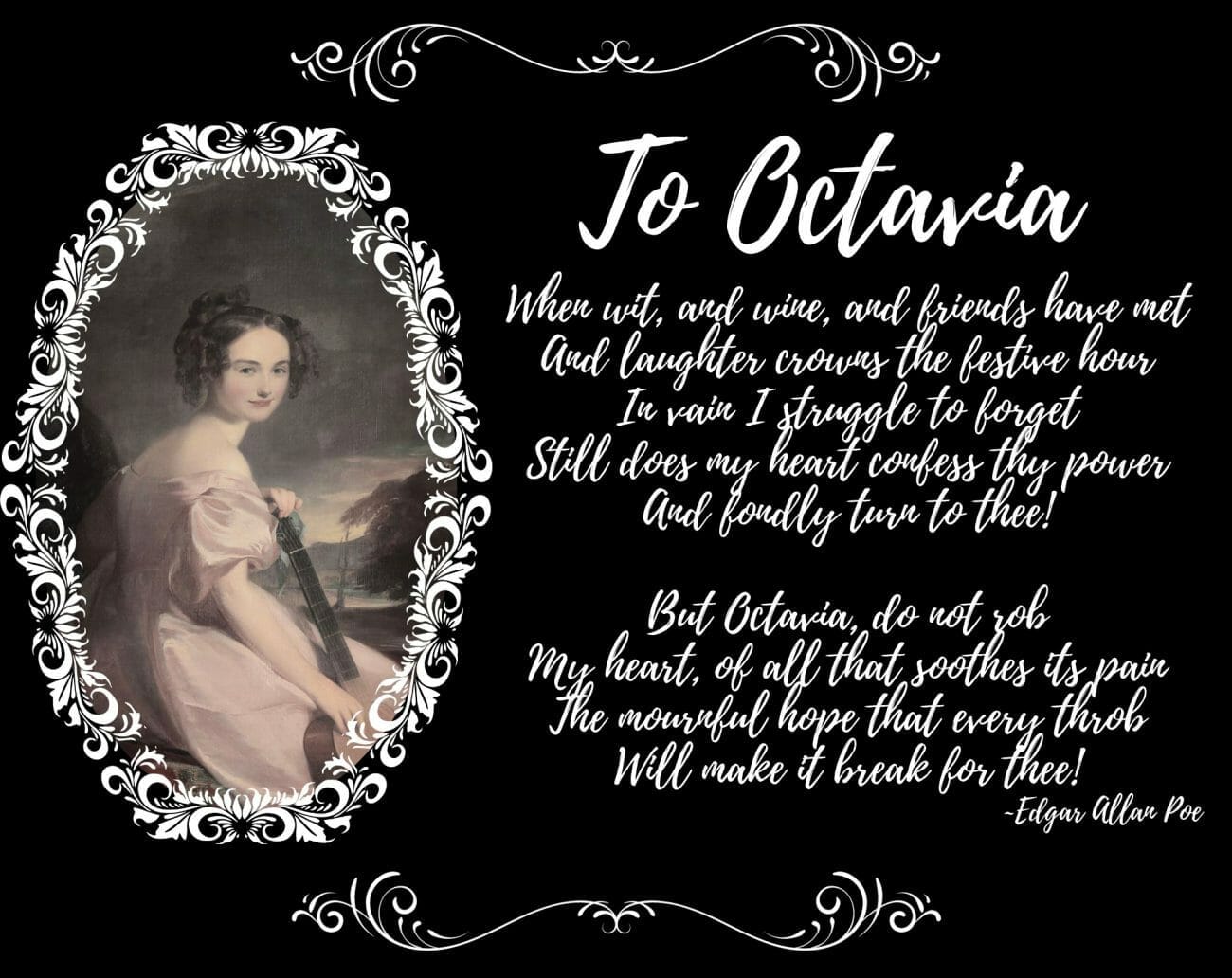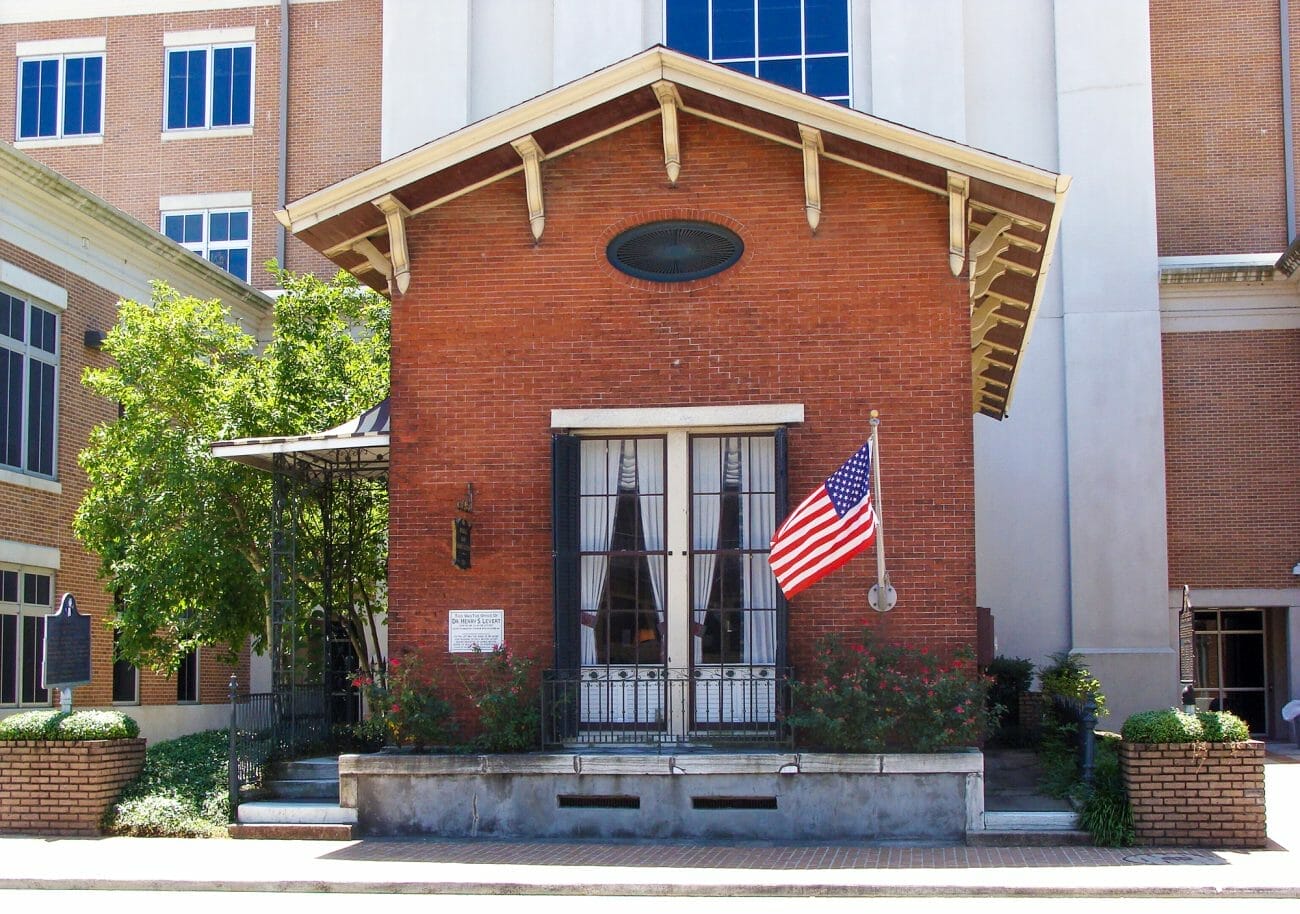Octavia Walton Le Vert
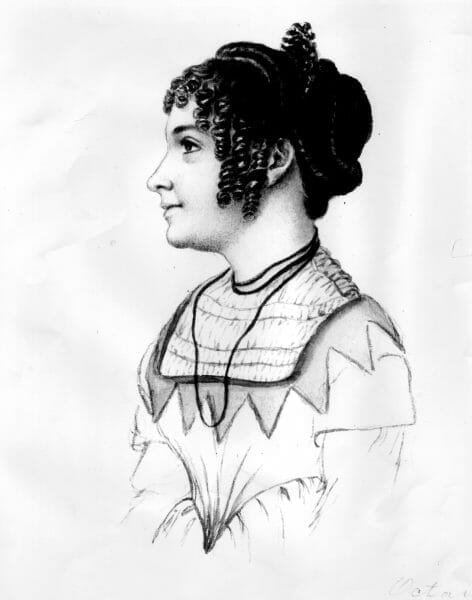 Octavia Walton Le Vert
Almost forgotten today, Octavia Walton Le Vert (1810-1877) was a famous socialite and writer during the mid-nineteenth century. From the 1830s to the 1850s, Le Vert hosted elegant gatherings of prominent politicians, literary figures, and professionals at her home in Mobile. She gained such an important reputation among the city’s elite that she was often known simply as Madame. Her best known published work is Souvenirs of Travel (1857), a small two-volume description of her travels in Europe in the mid-1850s.
Octavia Walton Le Vert
Almost forgotten today, Octavia Walton Le Vert (1810-1877) was a famous socialite and writer during the mid-nineteenth century. From the 1830s to the 1850s, Le Vert hosted elegant gatherings of prominent politicians, literary figures, and professionals at her home in Mobile. She gained such an important reputation among the city’s elite that she was often known simply as Madame. Her best known published work is Souvenirs of Travel (1857), a small two-volume description of her travels in Europe in the mid-1850s.
Octavia Celestia Valentine Walton was born on August 11, 1810, at Belle Vue, her maternal grandfather’s plantation near Augusta, Georgia. Her parents were George Walton Jr. and Sally Minge Walker, and she had one younger brother, Robert. Her paternal grandfather, George Walton Sr., was a signer of the Declaration of Independence, fought in the American Revolution, and later served as a U.S. senator. Her father, a prominent lawyer, served as a member of the Georgia State Legislature from 1812 to 1821, and her mother was from one of Georgia’s most prominent families. This family background contributed to the young Octavia’s social success and keen interest in politics.
Octavia lived at Belle Vue with her parents and maternal grandparents until she was 10 years old. She did not attend school but was tutored at home by her highly educated mother and grandmother. Later, she and Robert were tutored in science and Latin by a Scottish tutor. An enthusiastic student, Octavia showed a special aptitude for languages, mastering French and Spanish and learning to converse in Italian by the age of 12.
In 1821, Octavia’s father was appointed Florida’s first territorial secretary under governor William Duval, and the family moved to Pensacola. It was a very different life for Octavia, as Florida was then a frontier. Gen. Andrew Jackson’s forces had just defeated the Seminole Indians in the First Seminole War (1817-18), and in 1819 Spain had ceded its territory of Florida to the United States. Octavia, who was not yet 12, was able to assist her father in his duties as secretary by translating numerous French and Spanish documents into English for him. In May 1827, while traveling with her father, Octavia visited Baltimore and attended a social event where she met noted author Edgar Allan Poe, who wrote a poem in her diary named “To Octavia.”
In 1832, Sally Walton and her now-grown children embarked on a tour of the United States. During one leg of the trip, Octavia met author Washington Irving while traveling on a stagecoach. Irving, who remained a close friend until his death in 1859, encouraged her to express herself in writing. The Waltons also spent a great deal of time in Washington, D.C., where Octavia attended congressional debates and took careful notes on them. During her time in the capital, she became acquainted with the three great statesmen of the era, Daniel Webster, John C. Calhoun, and Henry Clay, with whom she developed an especially close friendship.
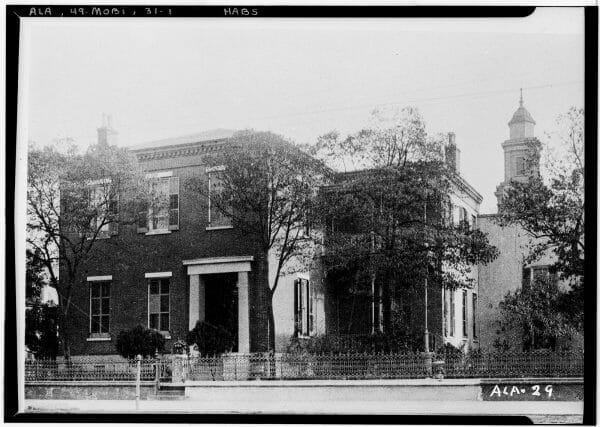 Le Vert Mansion
In 1834, after Duval’s term expired, George Walton moved his family to Mobile, Mobile County. Two years later, Octavia married physician Henry Strachey Le Vert, the son of a French physician who had settled in Mobile after the American Revolution, and with whom she had four daughters. The family lived in an opulent house on Government Street, and it was here that Octavia, now Madame Le Vert, began entertaining Mobile society at lavish parties. She also was a great supporter of Mobile society and the arts and had a special love for music. With all her social activities, Le Vert also continued her scholarly interests in reading, writing, and translation.
Le Vert Mansion
In 1834, after Duval’s term expired, George Walton moved his family to Mobile, Mobile County. Two years later, Octavia married physician Henry Strachey Le Vert, the son of a French physician who had settled in Mobile after the American Revolution, and with whom she had four daughters. The family lived in an opulent house on Government Street, and it was here that Octavia, now Madame Le Vert, began entertaining Mobile society at lavish parties. She also was a great supporter of Mobile society and the arts and had a special love for music. With all her social activities, Le Vert also continued her scholarly interests in reading, writing, and translation.
In spite of her privileged life, Le Vert expressed unhappiness and frustration on a number of occasions. Each of her pregnancies was difficult and caused her much anxiety in an age when women often died during childbirth. She also expressed frustration with the social expectation that married women must obey their husbands and the reality that her work would not receive the intellectual recognition it deserved because it was written by a woman. Le Vert experienced her deepest crisis in 1849, when her brother Robert and her two youngest daughters died within weeks of one another. She went into a two-year period of intense mourning and seclusion, from which she emerged at the insistence of two European friends, Lady Emmeline Wortley and Fredrika Bremer.
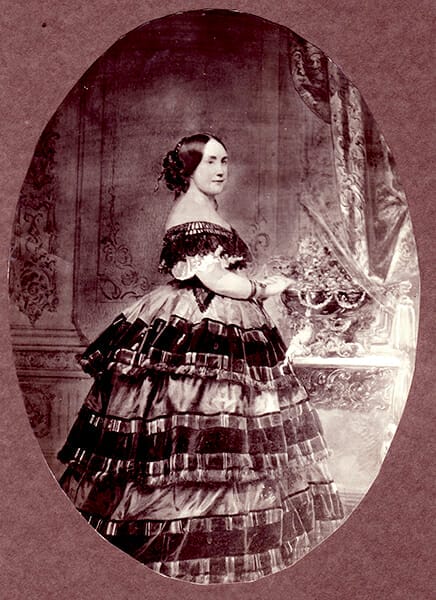 Octavia Walton Le Vert
In 1853, Le Vert traveled to Europe in the company of her husband and daughter Octavia. She wrote enthusiastic accounts of her travels in England, where she was presented to Queen Victoria, and Spain and Italy. In 1855, Le Vert made a second trip to Europe after she was appointed by Alabama governor John A. Winston as the state’s commissioner to the Paris Exposition. Her appointment attracted much notice, not only because of her legendary charms but because she was the Exposition’s only female commissioner. Le Vert herself, however, noted wryly that her position appeared to be purely honorary, as she was not even provided with cotton seeds to display. When visitors asked to see the products of Alabama, she could only point to her daughter. Le Vert’s account of these two European trips became the basis for her popular book, Souvenirs of Travel, published in 1857, in which she details her experiences with European high society. Upon her return to Mobile, Le Vert resumed the life of a socialite and also took a leading role in the successful national campaign to purchase and restore Mount Vernon, the home of George Washington.
Octavia Walton Le Vert
In 1853, Le Vert traveled to Europe in the company of her husband and daughter Octavia. She wrote enthusiastic accounts of her travels in England, where she was presented to Queen Victoria, and Spain and Italy. In 1855, Le Vert made a second trip to Europe after she was appointed by Alabama governor John A. Winston as the state’s commissioner to the Paris Exposition. Her appointment attracted much notice, not only because of her legendary charms but because she was the Exposition’s only female commissioner. Le Vert herself, however, noted wryly that her position appeared to be purely honorary, as she was not even provided with cotton seeds to display. When visitors asked to see the products of Alabama, she could only point to her daughter. Le Vert’s account of these two European trips became the basis for her popular book, Souvenirs of Travel, published in 1857, in which she details her experiences with European high society. Upon her return to Mobile, Le Vert resumed the life of a socialite and also took a leading role in the successful national campaign to purchase and restore Mount Vernon, the home of George Washington.
Le Vert’s socialite life in Mobile came to an end with the onset of the Civil War. Although she was loyal to her state once the fighting began, she was not a strong supporter of secession and had ambivalent feelings about the institution of slavery. During the war, she and her daughters, like many of Mobile’s most prominent women, nursed wounded soldiers. When the Confederacy surrendered, however, she openly welcomed the end of the war. She also entertained Union soldiers in her home, making her a traitor in the eyes of many Mobilians. For this reason, and after the loss of her husband in 1865, Mobile lost its appeal for Le Vert. She visited New York and Washington before returning to her native Augusta and settling in her old family home, Belle Vue.
Le Vert’s final years were difficult. Her fortune was gone, and she had to live on the charity of her cousins. In 1874, at 63, she attempted to earn an income by traveling around Georgia as a public reader. The effort was unsuccessful, and Le Vert returned to Belle Vue, where she died on March 12, 1877. She is buried in Arsenal Cemetery in Augusta. The Le Vert mansion was demolished in the 1960s, but Henry Le Vert’s physician’s office at 153 Government St. still stands and serves as the headquarters of the Mobile Bar Association.
Further Reading
- Forrest, Mary. Women Writers of the South Distinguished in Literature. 1861. Reprint, New York: Garrett Press, 1969.
- Le Vert, Octavia Walton. Souvenirs of Travel. New York: S. H. Goetzel, 1857.
- Webb, Paula Lenor. Such a Woman: The Life of Madame Octavia Walton LeVert. Point Clear, Ala.: Intellect Publishing, 2021.

